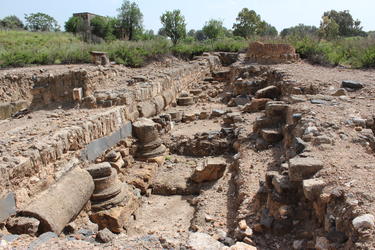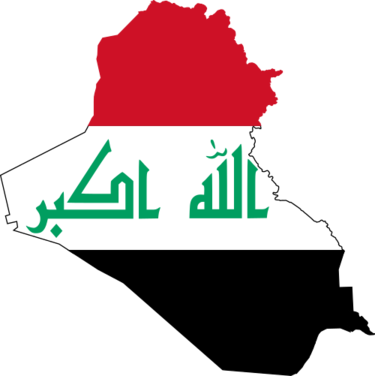Balkan Vortex of Violence Threatens Kosovo
Download Article
Some 10 years ago Serbian troops invaded the mostly Muslim province of Kosovo. After U.S. air strikes and NATO intervention, the United Nations began administering the province. But the UN mandate recently expired and Kosovo threatens to declare full independence from Serbia. The behavior of Balkan countries continues to perplex the Western world. Will many more innocent lives be lost in their seemingly futile quest for a stable and peaceful existence? What is the only lasting solution?
The Balkan countries of southeastern Europe have not had an easy history. Few regions of the world have suffered so much violence, murder, ethnic cleansing and reverse ethnic cleansing, as first one nation and then another gained the upper hand. The Balkan catalog of human suffering in the 20th century alone overwhelms the imagination.Balkan history is long and complicated. The Ottoman Turks crossed the Dardanelles in the 1320s. Serbia, Bosnia, Albania and Macedonia were among the Balkan nations conquered by the Turks, and they became a part of the Ottoman Empire. Many chafed under 600 years of Islamic rule. However, this enormous Turkish empire began to fray at the edges in the 19th century, and "in 1912-1913 three regional wars were fought in the Balkans" (Norman Davies, Europe: A History, 1997, p. 874).
Indeed it was an incident in the Balkans that proved to be the catalyst for the beginning of World War I (1914-1918). Norman Davies wrote: "The Bosnian crisis indicated where Europe's most likely flash-point lay. Austria-Hungary annexed Bosnia in 1908 without a shred of legal justification, having occupied and administered the country for the previous thirty years by international mandate" (ibid.).
So when in June 1914 Austrian Archduke Franz Ferdinand was assassinated in Sarajevo, Bosnia, it provided the spark that eventually led to the loss of many millions of human lives of many nations. Much of the flower of British manhood died in Belgian trenches. Yet World War I also virtually ended the long Ottoman reign. Historians have generally assigned 1920 as the formal year of the empire's final dissolution.
The Balkan countries were now "free" to begin expressing their ethnic, nationalistic, cultural and religious differences by warring among themselves in earnest. Enter Josip Broz Tito (1892-1980) of Croatia.
Tito's reign and its aftermath
This formidable personality did what no other individual of that region had done in historical memory. In January 1946 he united virtually all of the Balkan nations and imposed a multinational federation called Yugoslavia but dominated by Serbia. In reality, this group of countries (the new Yugoslavia) constituted a communist dictatorship.
However, Marshall Tito practiced his own partially pro-Western brand of communism—not liking the Russian model of collectivized agriculture and favoring self-management of workers. He proved to be a lingering thorn in the side of the Soviet Union, and so the Soviets formally expelled him from the party in June 1948. His federation had never been part of the Warsaw Pact, and he later became prominently involved in the so-called nonaligned nations movement.
The historic nationality problems, long endemic in the Balkans, were effectively suppressed during Tito's long and ruthless dictatorship (1946-1980). But the cohesive, residual effects of his rule lasted only for about 10 years, and those years were marked by outbreaks of nationalistic restlessness. The formal breakup of the federation followed in the 1990s. "War in Yugoslavia broke out in early June 1991 as soon as the parliaments of Slovenia and Croatia voted for independence" (Misha Glenny, The Balkans, 1998, p. 637).
The leaders who survived Tito simply did not possess his charismatic powers and presence among the Balkan peoples. They could not hold the federation together.
(Marshall Tito's accomplishments are in a minor way indicative of what another far more powerful charismatic personality will bring about in uniting Central Europe—militarily, economically and politically. Ten European rulers will give their powers over to him. His reign will astonish the world. The book of Revelation in the Bible calls him "the beast." To know much more, request or download our free booklets You Can Understand Bible Prophecy , The Book of Revelation Unveiled and Are We Living in the Time of the End? )
Back to Kosovo
This brings us to the Kosovo of just over 10 years ago. In April of 1996 a small number of ethnic Serbs were dining in a café in Kosovo. They were suddenly slaughtered by the Kosovo Liberation Army (KLA) composed of ethnic Albanians. Three other attacks, all attributed to the KLA, occurred that same night. Muslim Albanians compose 90 percent of the population of Kosovo, with a 10 percent minority of Serbs. This is the nub of the problem since Kosovo is still legally and formally a province of Serbia.
In the words of author Misha Glenny, "In Kosovo the death toll mounted on both the Serbian and Albanian sides. The European Union and the United States were awakened to the possibility of war in the province" (ibid., p. 655). American and NATO military action followed in defense of Kosovo, and the UN was soon in virtual charge of the province.
But where are we now in Kosovo? This province wants to become the seventh independent nation to emerge out of the former Yugoslavian federation. The United States and some key European nations support this bid for independence. America is popular in Muslim Kosovo, a rarity in the Islamic world today.
But Serbia strongly opposes independence for Kosovo. Boris Tadic, president of Serbia, firmly stated: "As long as I am President of Serbia, I will never accept the independence of Kosovo" (quoted in Time, Dec. 31, 2007).
Serbia has a powerful backer in Russian President Vladimir Putin. He has clearly said in advance that he will vote against recognition of Kosovo in the United Nations Security Council. Besides sharing Slavic blood and ethnic ties with Serbia, Putin is trying to rebuild Russian clout and influence in the world. He is also leery of setting any precedents that might be interpreted as encouraging breakaway groups in Russian regions like Chechnya.
Would an independent Kosovo become another Taiwan? Would yet another vulnerable Balkan state be forever dependent on outside sources like NATO or the UN for its security? What would become of its Serbian minority?
Of course, Kosovo is far from the only problem in the Balkan mix. Bosnian Serbs would also like to form an independent country or possibly join forces with Serbia. Regional stability remains very far removed from reality and satisfaction among the citizenry is in very short supply. The abject suffering among the Balkan population is and has been immense. Some of these regional problems appear almost insurmountable.
What is the solution?
The apostle Paul sums up the New Testament solution to the kinds of difficulties that are endemic to the Balkans. "For as many of you as were baptized into Christ have put on Christ. There is neither Jew nor Greek, there is neither slave nor free, there is neither male nor female; for you are all one in Christ Jesus" (Galatians:3:27-28 [27] For as many of you as have been baptized into Christ have put on Christ.
[28] There is neither Jew nor Greek, there is neither bond nor free, there is neither male nor female: for ye are all one in Christ Jesus., emphasis added throughout). Many of these national and cultural differences fade in relative importance when we repent, become baptized and receive God's Holy Spirit (see Acts:2:38Then Peter said unto them, Repent, and be baptized every one of you in the name of Jesus Christ for the remission of sins, and ye shall receive the gift of the Holy Ghost.). We begin to see things in a far different light.
According to the Bible, to become truly converted is to lay aside the deeds of the darker side of our human nature. Murdering members of other ethnic groups is not an option for Christians. It is an evil work of the flesh in the biblical sense and a stark violation of the Ten Commandments.
Later Paul repeats the point to the church at Colosse. "But now you yourselves are to put off all these: anger, wrath, malice, blasphemy, filthy language out of your mouth. Do not lie to one another since you have put off the old man with his deeds, and have put on the new man who is renewed in knowledge according to the image of Him [God] who created him, where there is neither Greek nor Jew, circumcised nor uncircumcised, barbarian, Scythian, slave nor free, but Christ is all and in all" (Colossians:3:8-11 [8] But now ye also put off all these; anger, wrath, malice, blasphemy, filthy communication out of your mouth.
[9] Lie not one to another, seeing that ye have put off the old man with his deeds;
[10] And have put on the new man, which is renewed in knowledge after the image of him that created him:
[11] Where there is neither Greek nor Jew, circumcision nor uncircumcision, Barbarian, Scythian, bond nor free: but Christ is all, and in all.).
We know that the Balkan population at large is highly unlikely to adopt this biblical solution en masse. But individuals there clearly could. For further help we offer our free booklets The Road to Eternal Life and Transforming Your Life: The Process of Conversion .
The long-term solution is the second coming of Jesus Christ and the beginning of the rule of the Kingdom of God on this earth. Christ's millennial reign will solve all of these world problems. Our free booklet The Gospel of the Kingdom , lays out the overall plan and purpose of God for humankind. You may request a copy in print or download it on our Web site. WNP
Nation Rising Against Nation
Observers are struck by the obvious interconnectedness of the various Balkan nations. Troublesome events in one country often affect neighboring nations negatively. The Balkan mix is continuously potentially explosive.
In spite of 16,000 NATO soldiers stationed in Kosovo, the Slovenian foreign minister described the situation there as "a risk—it is very serious." Slovenia assumed the six-month rotating presidency of the European Union on Jan. 1. He saw Kosovo as potentially the biggest challenge to the Slovenian presidency. The Financial Times headlined its article, "Slovenia Fears Kosovo Partition."
The general history of the Balkans is punctuated with either nations fighting one another or ethnic groups within nations warring with each other. The conflicts there bring to mind the Olivet Prophecy recorded in Matthew 24, Mark 13 and Luke 21.
It was first spoken and later recorded in writing to inform us about what would happen in the time of the end. In it Jesus Christ warned that "nation will rise against nation, and kingdom against kingdom" (Matthew:24:7For nation shall rise against nation, and kingdom against kingdom: and there shall be famines, and pestilences, and earthquakes, in divers places.). You may want to request our free booklet Are We Living in the Time of the End? WNP

